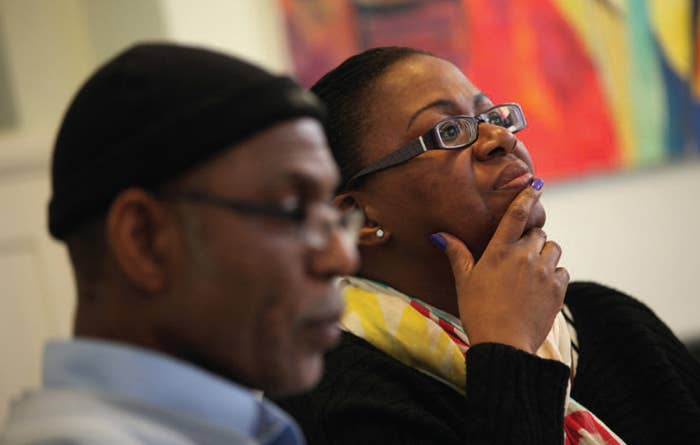
Teachers from black and minority ethnic backgrounds are encountering racism that prevents them from being promoted and is forcing them out of the profession altogether, a new report has said.
The report found that more than 60% of black and ethnic minority (BME) teachers were thinking of leaving the teaching profession because of the difficulties they faced.
One teacher told BuzzFeed News that racism in the profession was endemic, saying he had been told "your face doesn't fit" when he applied for a promotion.
Another teacher said they were told by a headteacher in a job interview that they were "not sure how somebody like you would fit in here."
The study, commissioned by the National Union of Teachers (NUT) and conducted by the Runnymede Trust, surveyed teachers across the UK.
In total, 1,027 BME teachers responded, while focus group interviews were conducted with 15 BME teachers from different geographical locations and stages of schooling.
The results exposed the fact that teachers from minority backgrounds experience attitudes among senior teaching staff that they “have a certain level”, and are incapable of being promoted beyond that.
Many of the teachers also said they felt unable to challenge decisions, as they faced being branded troublemakers or aggressive for speaking out.
BME teachers also described experiencing a lack of support from their line managers in terms of career progression and dealing with racist incidents.
Many BME teachers felt that not all racism and discrimination experienced in schools was deliberate, and several spoke of "unconscious bias" and ingrained racist attitudes among senior leaders and governing bodies.
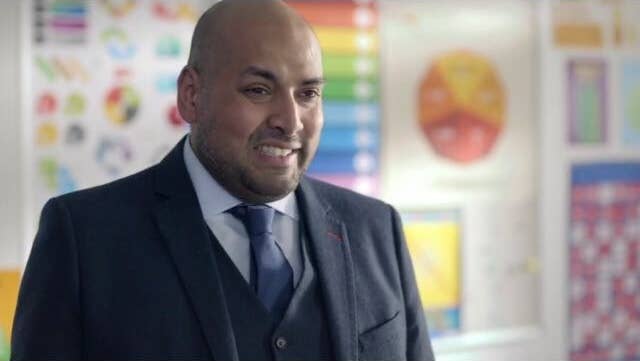
Pran Patel, a teacher of 12 years and an aspiring senior leader, told BuzzFeed News he had experienced "a whole heap" of racist incidents in his previous teaching roles.
"It's institutionalised, it's nothing you wouldn't expect in any profession, but being a teacher you'd expect it to be a little less prevalent," Patel, 34, who teaches in Southwark, central London, said.
He described several incidents that had taken place in previous workplaces, including standing in a group of teachers from BME backgrounds when a senior teacher walked past and said, "Are you lot taking over?"
In another incident, a pupil was being reprimanded for behaving badly by a member of staff from Zambia who Patel describes as an "amazing teacher". The same senior leader from the previous incident told the pupil: "I can't believe you're behaving that badly – do you know how much we have to pay to bring these people over to teach you?"
In a third incident a pupil abused a Turkish member of staff, saying, "All Turkish men are paedophiles." But the pupil was allowed back in the classroom the next day without having to apologise to the teacher concerned. When the teacher complained to a white senior leader, he was told: "Is this how you are feeling? Or is it really happening?"
"They said, 'Your results are great, you're amazing with the kids, but your face doesn't fit'"
"You don't want to be seen as a troublemaker," Patel said, on why BME teachers don't complain more about their treatment.
"The amount of times I've been told I'm aggressive, when a white counterpart has been told, 'Look at their passion.'
"I've been told my face doesn't fit – they said, 'Your results are great, you're amazing with the kids, but your face doesn't fit.' I've been passed up for promotion.
"I know a black teacher who was told she doesn't fit the image of a PE teacher. She was told that she had it over the candidate they picked, but she didn't fit their stereotype of a teacher.
"We're given pastoral roles because of our 'skillset', I don't understand how that works.
"And black and minority ethnic teachers make up 7% of the workforce, but 2% of headteachers – there's a massive inequality.
"If you're a woman or BME you're going to be in trouble. I've had conversations with members of staff who are so disillusioned with being stuck at middle-management level.
"There is a massive exodus of really amazing staff – we're losing a lot of talent through a lack of career progression.
"I think unconscious bias is a massive, massive thing. Governors, when they're appointing a headteacher, expect a man in his forties or fifties. When they see a young non-white woman sitting in front of them, with all the same credentials, they don't expect that, so may be less likely to appoint them. Unconscious bias is huge."
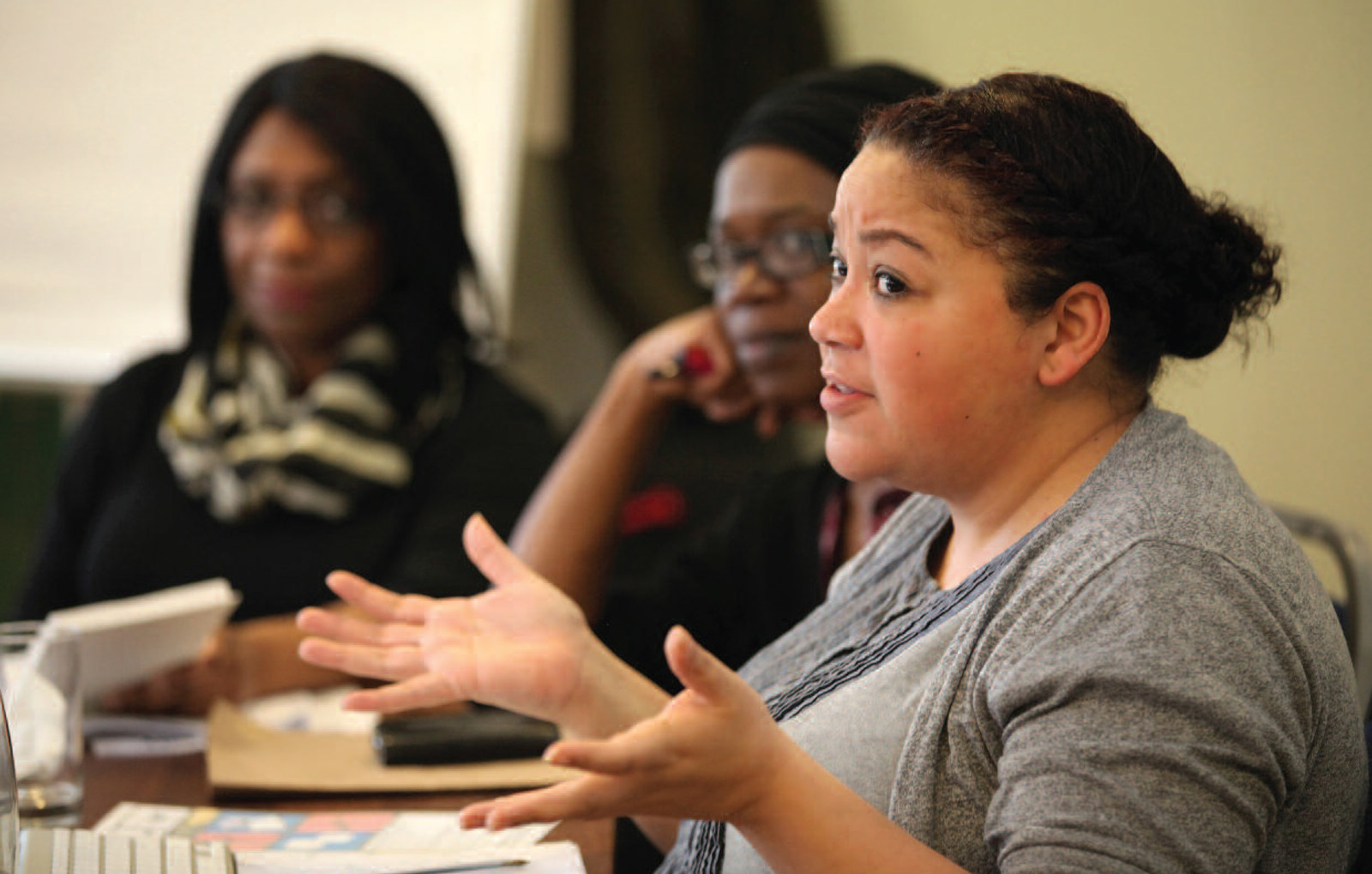
In London, where 67% of pupils are from BME backgrounds, and in Yorkshire and the Humber, where many schools have significant proportions of non-white pupils, only 1% of headteachers are from BME backgrounds.
Sandy, who wished to be identified by her first name, said she had been a middle leader for 11 years but was finding it difficult to make the leap to assistant headteacher.
"I'm told, 'unfortunately there's no position available', or 'we'll make you an associate but we can't pay you, because we haven't got the funding', or 'you're a fantastic teacher and you're definitely ready for leadership, but we can't give you anything'," Sandy, who has worked in Kent, Suffolk and London, told BuzzFeed News.
"Another thing I've found is the language with BME teachers. It's very much 'you've got to tread carefully, she can be aggressive', or 'she's got a face on her she's quite aggressive'. And I've had teachers who are persistent in calling me my full Asian name even though I prefer Sandy, while white colleagues will be shortened to 'Sam' or 'Will'."
Sandy said there was a "definite bias, it's probably most of the time unconscious or indirect, but it's definitely there. There's differences in the way you're treated that are sometimes quite stark, sometimes more indirect."
She added: "Seven or eight years ago when I went to a job interview, a headteacher said 'I'm not sure how somebody like you would fit in here'.
"He said: 'I'm not sure how the kids would react, there's not many of you here'."
Professor Gus John, a fellow of the London Centre for Leadership in Learning at the Institute of Education, University of London, and visiting faculty professor of education at the University of Strathclyde, said the profession was haemorrhaging BME teachers due to a lack of support from senior staff.
"It's not so much a glass ceiling, but a concrete ceiling."
"It may not be deliberate racism on the part of an individual," he told BuzzFeed News, "but institutional practices discriminate against a particular group of teachers.
"Schools are failing to acknowledge their capabilities, as well as the importance of the relationship with the community, bringing something with their blackness into the classroom.
"The result is that more and more black teachers get shunted out of the system.
"It's not somebody saying, 'You're a black bastard, you're a filthy nigger, I don't want you around me,' you don't have that kind of thing happening regularly, but you do have more benign racism – it affects their performance, it affects their sleep.
"And it's not just black teachers – it's happening with black lecturers at universities too."
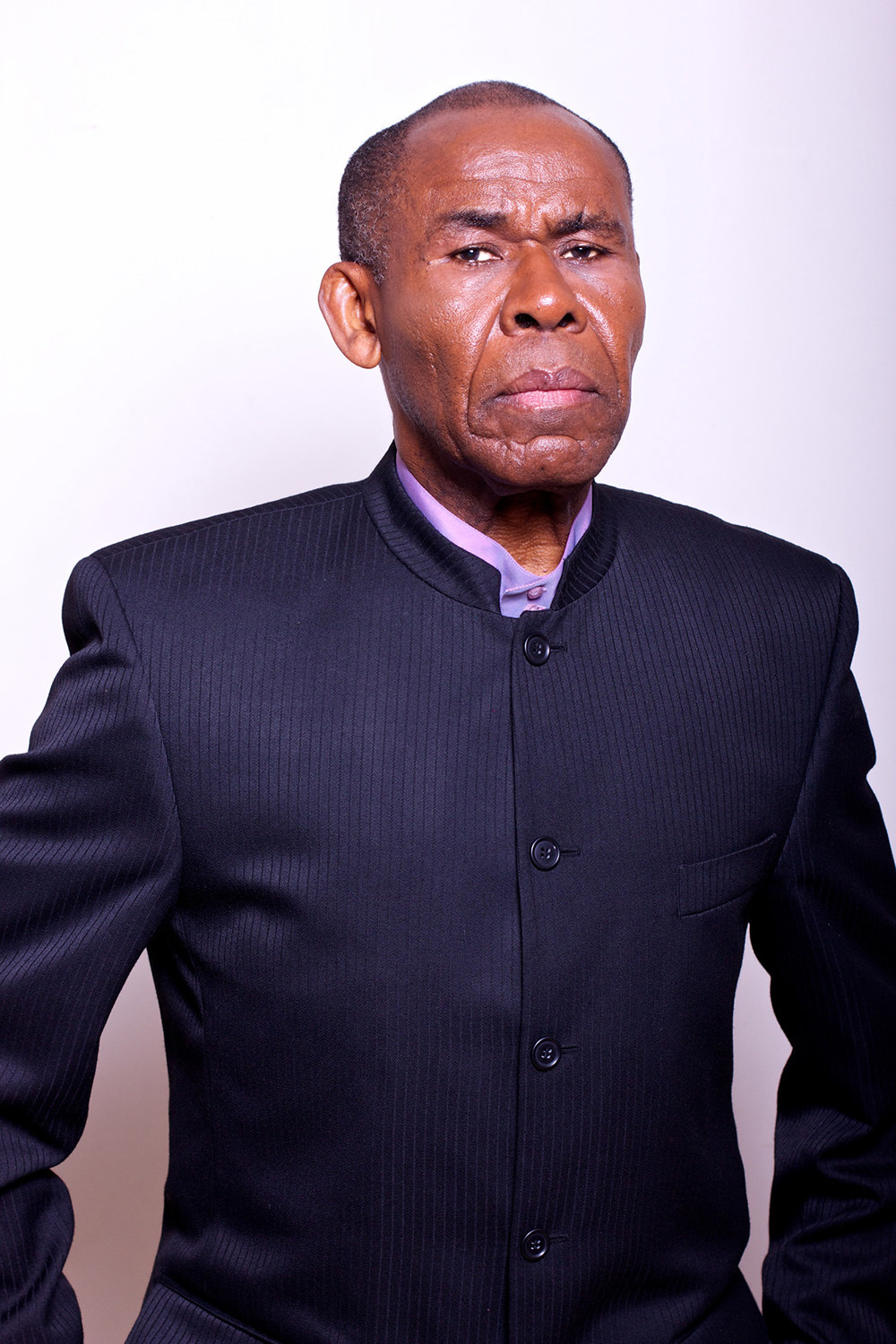
John also voiced concerns that a move towards academies and free schools was exacerbating the problem.
One education adviser and former teacher who wished to remain anonymous also shared similar concerns, telling BuzzFeed News that a "fragmented education system" was leading to a lack of accountability.
"One of the problems is that the education system is quite fragmented, there's not enough leadership right from the top to say that this is very important," she said.
"Local authorities did have a big role to play, but their role has been minimised.
"There was a previous requirement for schools to log all racist incidents but that's no longer a requirement, so it's really up to schools to have procedures in place and that's not helpful."
The former teacher said the proportion of BME teachers had fallen, which she said was in part down to a move from university-based to school-based teacher training.
She explained that many experienced racism on placements, causing them to drop out before completing the course.
"The BME population is 30%," she said. "There's a big gap there in diversity of teaching staff, particularly in senior leadership.
"It's not so much a glass ceiling but a concrete ceiling when it comes to BME colleagues – they're often not given options for promotion."
She suggested that change needed to come "from the top", that the Department for Education and individual governing bodies needed to prioritise diversity in teaching.
"We need clear leadership for the DfE," she said. "The DfE has diversity grants, but that's the only real strategy, it's a drop in the ocean when you look at what needs to be done.
"Governing bodies also play an important role in who they appoint, and they are often made up of men who are older and white – they're not really reflective of communities."
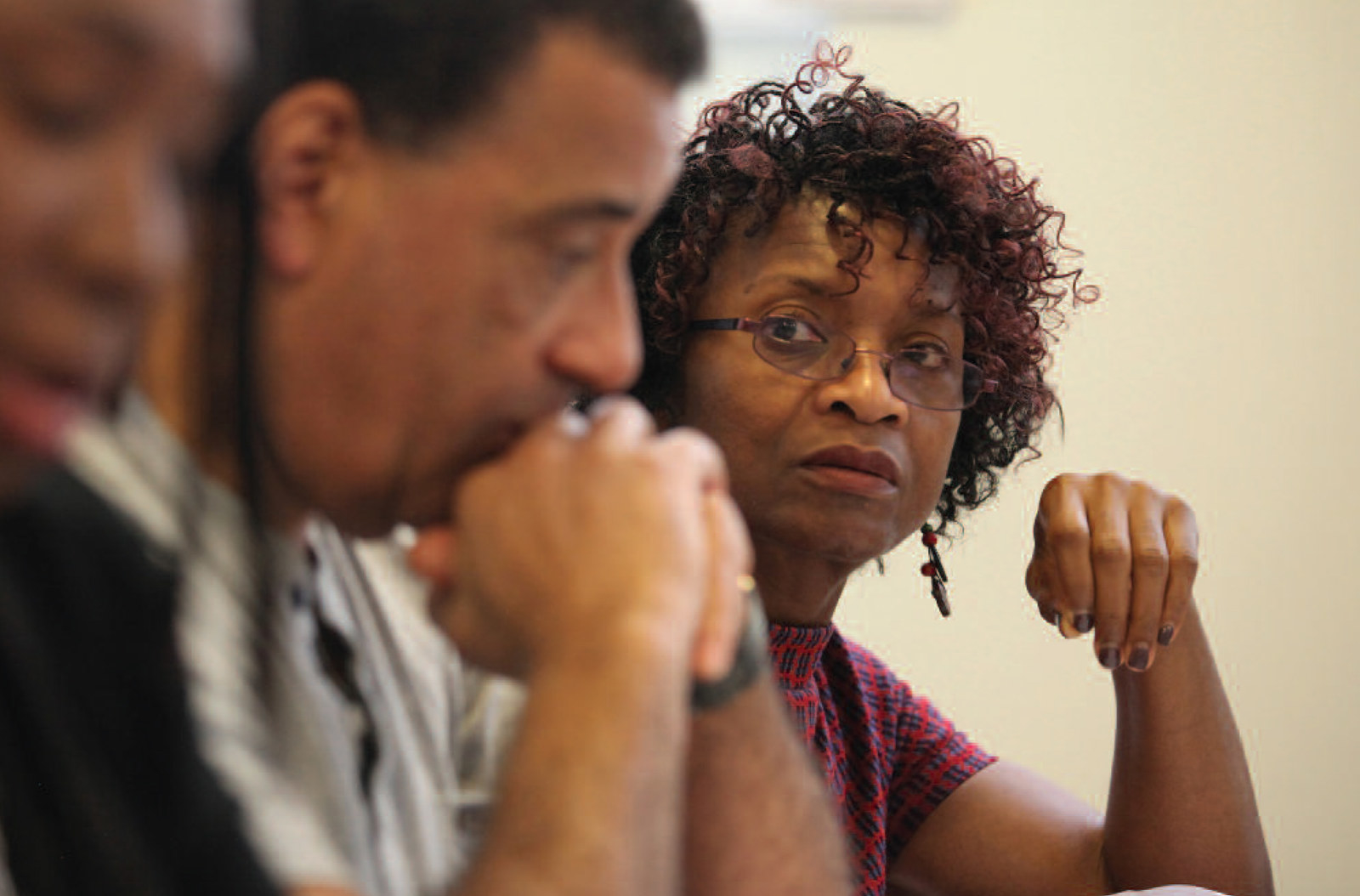
Dr Zubaida Haque, a research associate at the Runnymede Trust and one of the report's co-authors, said: "Government and school leaders should be concerned that over 60% of BME teachers are thinking of leaving the teaching profession.
"Our survey found that BME teachers were not only overwhelmed with the mountain of paperwork but they are also beaten down by the everyday 'microaggressions' in the staff room and the low expectations and support by senior staff in their schools. This has led to BME teachers feeling undervalued, isolated and disillusioned with their careers.
"If BME and white pupils see BME teachers being treated unequally this sends out unacceptable signals to the next generation. For this reason, both schools and the government must do everything in its power to tackle the barriers faced by BME teachers in schools."
Kevin Courtney, general secretary of the NUT, said: "Racism is not discussed enough in schools, even at a time when intolerance is increasing within society.
"These findings remind us that it is a defining feature of BME teachers’ lives and deeply affects the experience of young black people. It is urgent we open up conversations about racism in staff rooms, in classrooms and in the curriculum.
"The government has starved local authorities of the funds and remit they need to sustain the race equality teams which supported schools and developed anti-racist education and professional development opportunities. It has given no thought to what to put in their place."
He added: "Children come to school in a world that is not equal. BME teachers and pupils face racism in the streets, in popular culture and in employment. Strategies to better use the potential of schools and colleges to reduce racism are urgently needed. The NUT will be using the good practice identified in schools via this research to develop practical tools for schools to challenge the effects of racism."
A DfE spokesperson said: “There is no place for any form of harassment or bullying in the workplace and the law prevents any employer from discriminating against an employee on the basis of characteristics such as race, gender or disability.
“We provide a range of support to teachers from black and ethnic minority backgrounds such as the Leadership Targeted Support Fund and Equality and Diversity Fund. These fund support networks for BME teachers as well as coaching and mentoring for BME teachers in senior leadership roles."
